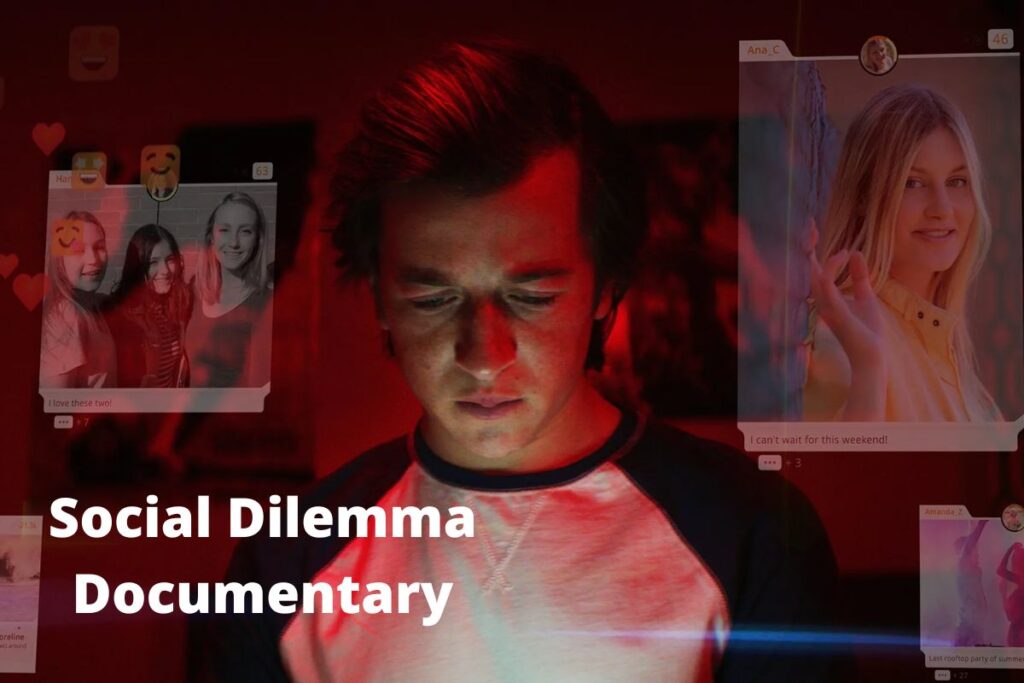If you’ve been on social media lately, you might have picked up on a stray hint that something is amiss. People who believe in corona spiritism and are itching to fight over 5G masts are gullible fools. Governments that control by stirring up voter discord and sounding like a bunch of buffoons. Feel like you’re being thrown into a pot of boiling hatred and left there to die. Extremism. Bogus reports. Crises in mental health care The fact that you signed onto social media in the first place is, of course, the biggest issue.
A new Netflix docudrama, The Social Dilemma, explores these issues in gripping detail over 90 minutes, and it may be the most crucial film to watch in recent memory. The film’s premise, that social media platforms like Facebook, Twitter, Instagram, etc. aren’t exactly producing a utopia, isn’t exactly going to set the world on fire when it premiered at the Sundance Film Festival in January.
The book’s strength is in the compelling clarity with which it exposes a wide variety of difficult issues. The genius of this piece is that it uses the very Silicon Valley insiders who created these platforms to highlight the scary hazards that they have only recently realized. An ex-Facebook executive’s statement, “In the shortest time horizon I’m most frightened about civil war,” is as unambiguous a statement as you’ll find on the perils of social media.
Misconceptions about social media businesses selling users’ data are soon dispelled; instead, your information is put to use in building a detailed psychological profile of you. What they’re offering is the capacity to influence your actions and thoughts in subtle ways that you might not even notice at first. Altering your behavior, outlook, and identity is the only way for them to make a profit.
There is no serious consideration given to the possibility of avoiding the consequences of or resistance to social media. We enter Stanford University’s lecture halls, where experts in psychology explain how one’s brain can be rewired through the use of technology, ultimately leading to addiction. It’s much worse for teenagers, we’re told, and this has prompted a must-see feature that feels like the modern-day counterpart of when Jamie Oliver’s School Dinners warned parents to keep their kids from stuffing their faces with turkey Twizzlers.
In one of the film’s most impressive dramatic sequences, a pouting preteen poses for selfies overlaid with filters that distort her features until she looks like a cartoon character, while ex–Google employee Tristan Harris explains how social media “starts to dig deeper and deeper down into the brain stem and take over kids’ sense of self-worth and identity.” Facebook’s former “VP of Growth” gave a tearful address to students, telling them that the insatiable need for “likes” he fostered “leaves you more barren and empty,” beside graphs depicting rising teen suicide rates.
Artificial intelligence (AI) and the underlying algorithms of social media are also seen as worrisome potential destabilizers of social harmony. Due to their volatility, a former Facebook operations manager said, “They’re managing us more than we’re controlling them.” As a result, it is extremely challenging for social media corporations to prevent the spread of fake news, which undermines the concept of truth.
The growth of those who believe the Earth is flat. A Youtube algorithm is credited for the hundreds of millions of views the conspiracy videos have received. Pizzagate? Went public when Facebook’s algorithm recommended their groups to conspiracy-prone people, prompting one man to show up at a restaurant armed with a machine gun to rescue made-up kids being held hostage in a basement. The engineer responsible for the malicious Youtube algorithm says, “It’s easy to imagine that it’s only a few naive people that get convinced, but the algorithm is growing smarter and wiser every day.” They may have you believe the Earth is flat now, but they’ll have you believe something else tomorrow.
Life may go on after Cambridge Analytica. But despite it being public knowledge that Vote Leave and Trump’s 2016 election campaign mined voters’ Facebook data on a vast scale, The Social Dilemma still manages to discover fresh and vital examples of how these platforms undermine modern politics. A Harvard Business School professor undermines the premise that we can avoid their political impact by revealing Facebook’s “massive scale contagion experiments” which made users vote in the US midterm elections — without them even recognizing they’d been inspired to do so. How much of an impact did Russia’s hack of Facebook have on the 2016 US election? “The Russians didn’t hack Facebook. They used the tools that Facebook built for legitimate advertisers,” says one of the company’s ex-investors. Harris explains that “state actors” can purchase the destabilization of democracies around the world. If this documentary is to be believed, social media poses an existential threat to the continued existence of nations.
The documentary’s significance, however, lies in the fact that it provides viewers with something that has been increasingly scarce in recent years: hope. The website thesocialdilemma.com argues that regulation is necessary, and it provides tools for parents, steps to take to combat disinformation, and ways to join Harris’s Centre for Humane Technology, an organization that seeks to alter the tech industry’s culture and persuade lawmakers to enact new laws. Harris argues that consumers have the power to “demand that those items be created humanely.” “We made these, so we must alter them,” Absolutely. The first thing to do is to see this amazing documentary and get others to do the same.
Do follow our site dailyrealtime.com and get all the latest updates.

